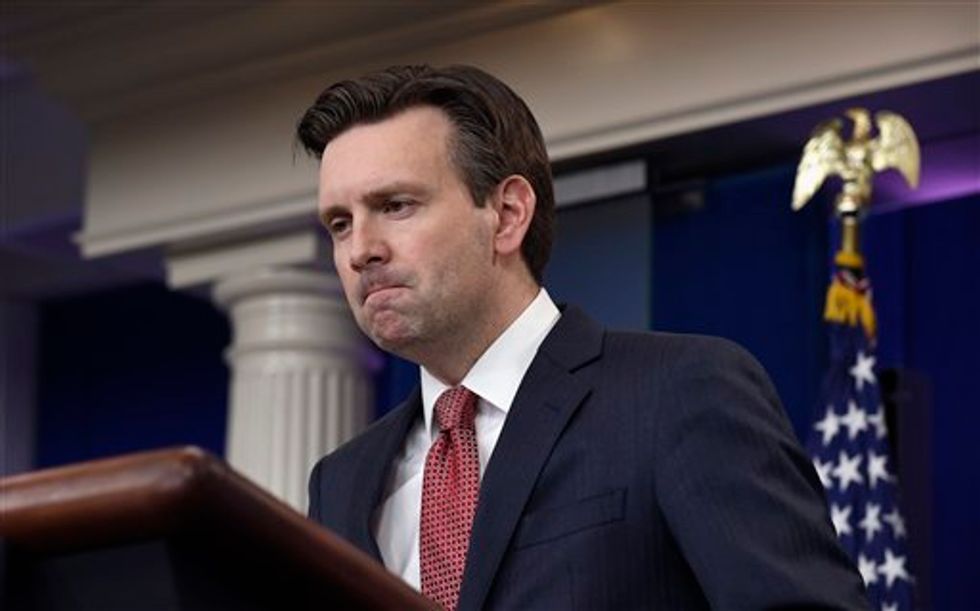
White House Press Secretary Josh Earnest listens during the daily briefing at the White House in Washington, Wednesday, Feb. 17, 2016. Earnest talked about the death of Supreme Court Justice Antonin Scalia. (AP Photo/Susan Walsh)

White House press secretary Josh Earnest wrote a letter to the editor published in the New York Times Wednesday arguing that journalists should take note of the Obama administration’s efforts to become “the most transparent White House in history.”
 White House press secretary Josh Earnest (AP Photo/Jacquelyn Martin)
White House press secretary Josh Earnest (AP Photo/Jacquelyn Martin)
Earnest wrote in response to a piece by Times media columnist Jim Rutenberg, who argued that, if Democratic presidential candidate Hillary Clinton wins the election, “her administration would continue the tradition of being still more secretive than the one before it.”
“The Obama White House has achieved just that with its abysmal record on fulfilling Freedom of Information Act requests and its record of prosecuting whistle-blowers who have shared national security information with the press,” Rutenberg wrote.
What journalists should note about the most transparent White House in history: My letter to the @nytimes editor → https://t.co/DWUfpJBHaM
— Josh Earnest (@PressSec) August 31, 2016
Earnest objected to Rutenberg’s argument, claiming that as he “criticized the leading presidential candidates for their lack of transparency” he “did not acknowledge the important and unprecedented steps that the Obama administration has taken to fulfill the president’s promise to lead the most transparent White House in history.”
According to Earnest, their “accomplishments” include “routinely and proactively releasing the name, date and time of nearly every White House visitor,” inviting journalists to cover the president’s remarks at fundraisers and releasing data sets on Data.gov.
“If journalists don’t acknowledge steps that the Obama administration has taken to strengthen transparency, then who will?” Earnest wrote. “Leading the fight for government transparency means confronting politicians who face intense political pressure on narrow, short-term interests and pressing them to prioritize transparency, too, even when it’s politically inconvenient — especially when it’s politically inconvenient. In this regard, impartial journalists are advocates.”
“Effective advocacy means giving credit where it is due,” Earnest added. “If President Obama’s government transparency effort is not even noted by The Times’s media columnist, then why would future presidential candidates make it a priority?”
Many journalists have criticized President Barack Obama’s White House for what they characterize as a lack of transparency. According to a 2015 analysis by The Associated Press, his administration “set a record again for censoring government files or outright denying access to them last year under the U.S. Freedom of Information Act.”
Photojournalists have also contended that they have been granted limited access to the president by the administration in favor of official White House photographers.
—
Follow the author of this story on Twitter and Facebook: